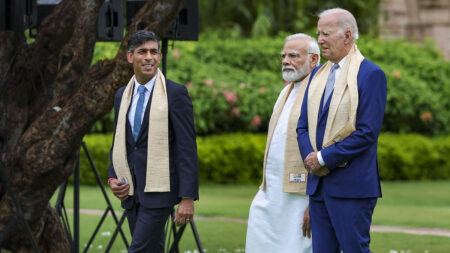The execution included those convicted of murderers, members of Al-Qaeda and the Islamic state. Talking about nationality, there were seven Yemenis, one Syrian national and the remaining were Saudi Arabian nationals.
A day after these executions, the Iranian government suspended talks with Saudi Arabia. This development was reported on Sunday by Nour News, a news organization close to Iran’s Supreme National Security Council.
In a short update, the news website said that Iran has unilaterally decided to suspend talks with Saudi Arabia for some time with no specific reason for the execution. This would have been the fifth round of talks scheduled to be held in Baghdad.
Who were the 81?
About the recent 81 execution, the Saudi Press Agency (SPA) said that the sentences involved those convicted under charges of terrorism and capital crimes.
The press agency also said that the individuals were convicted of crimes including murdering innocent men, women and children with pledging their alliances to foreign terrorist organizations including ISIS, Al-Qaeda and the Houthis.
Other than this the convictions also included crimes of kidnapping, torture, rape, smuggling arms and bombs into Saudi Arabia.
SPA in a press release said, “The kingdom will continue to take a strict, unwavering stance against terrorism and extremist ideologies that threaten the stability of the entire world.”
History with execution
Saudi Arabia has carried out more than 800 executions so far which ranks it highest among the nations that carry out executions in the world along with China, Iraq, Vietnam and Iran. In 2019 alone 184 executions were carried out in this country.
Human rights organizations have repeatedly criticized Saudi Arabia for its human rights violation, repressing freedom of expression and cracking down on dissent.
The Shia-Sunni divide
Sour relations between Saudi Arabia and Iran are not recent developments and the significant contributor to this tense relationship is the religious differences that go back centuries. Iran has a majori0ty of Shia Muslims, whereas Saudi Arabia has more Sunni Muslims who also are a majority in the whole world.
These religious differences are not only limited to Saudi and Iran but also play a huge part in maintaining testability in the rest of the middle east, where some countries depending on their populations of Sunni and Shia Muslims look up to either Saudi Arabia or Iran.
The tension between Saudi Arabia and Iran
According to Council on Foreign Relations (CFR), many of the groups that are responsible for sectarian violence in the region since 1979 can be traced to the tensions between Saudi Arabia and Iran.
The tension between these two countries can be dated back to at least 4 decades when the de facto leader of the Muslim world-Saudi Arabia-had to face the possibility of another leader competing for the same position.
In 1979, during the Iranian revolution, the Saudi monarchy felt threatened by the creation of the Islamic Republic of Iran.
But with the revolution in Iran, an alternative type of state was created which was followed by Iraq’s invasion of Iran where Saudi Arabia supported Iraq which further worsened the ties with Iran.
In 2003, when the US invaded Iraq (A Shia majority country) which marked the fall of Saddam Hussein’s regime (a member of the Sunni minority) giving the Shia majority a perfect opportunity to occupy space in the country’s parliament.
Up until then, Saudi Arabia was considered as the leader of the Muslim world, where Mecca (Birthplace of Prophet Muhammad) and Medina (the place where he was buried) are located.
Impact on the Middle East
The fall of Saddam’s regime in Iraq exacerbated the feelings of rivalry between Saudi Arabia and Iran.
This sentiment played out elsewhere in the Middle East, for instance, Iran favored the rule of Bashar Al-Assad over the Sunni majority nation of Syria while Saudi Arabia supported protests against his dictatorship.
Another instance can be seen in 2011 where Iran supported the pro-democracy protests in Shia majority Bahrain and Saudi Arabia has to send troops to help the regime of King Hamad to quell them.
The final blow to diplomatic relations came in 2016 when Saudi Arabia executed Shiite cleric Nimr al Nimr along with some other prisoners which resulted in an attack on the Saudi Arabian embassy in Tehran which then prompted to suspension of diplomatic relations.
Published By – Damandeep Singh
Edited By-Kritika Kashyap













